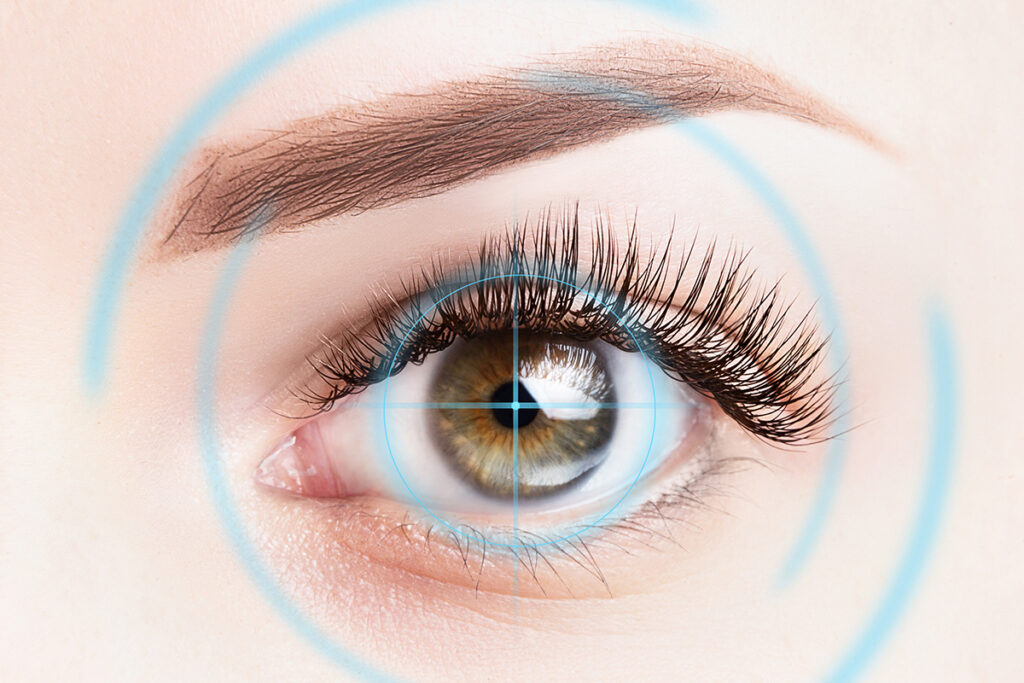At Kornmehl Laser Eye Associates, our board-certified ophthalmologist has helped thousands of patients achieve ocular independence with LASIK vision correction. Dr. Ernest Kornmehl in Boston often hears many of the same questions from different patients during LASIK consultations, including those found below.
1. Are LASIK Results Permanent?
The LASIK procedure works by reshaping the cornea’s curvature to correct refractive errors. Nearsightedness (myopia), farsightedness (hyperopia) and astigmatism are vision problems that happen when the clear dome in the front of the eye (cornea) is abnormally shaped. LASIK permanently corrects vision for these refractive errors for the vision prescription at the time of the procedure. Essentially, LASIK results are permanent, but the eyes may still change.
People with myopia, hyperopia and astigmatism have prescriptions that change regularly until their late teens or early 20s, when the eyes reach ocular maturity. This is why LASIK candidates need a stable prescription for at least one year to ensure they achieve and maintain excellent eyesight. LASIK is performed using precise measurements for your current prescription, and results are permanent for the parameters at the time.
The natural lens inside the eye tends to harden starting at age 40 and causes blurry near vision (presbyopia). People require reading glasses to read fine print due to presbyopia. Whether you’ve had LASIK or not, these changes will affect your vision because it involves the eye’s lens and not the corneal shape.
2. Is LASIK Covered by Insurance?
Many health insurance providers consider LASIK vision correction procedures elective and not eligible for coverage because LASIK is not medically necessary. Depending on your plan, vision insurance may offer more options to cover eye care services or savings for laser vision correction.
3. How is LASIK Done?
LASIK is a quick and highly effective surgery that begins with creating a flap using the anterior layer of the epithelium that covers the cornea. Dr. Kornmehl folds the LASIK flap back from the eye’s surface and uses a laser to reshape the eye. The laser uses precise measurements of your eyes’ anatomy and vision prescription to contour the cornea for crisp vision at all focal points. Once the laser is finished, the flap is placed back on the eye and begins to heal and self-adhere to the eye within minutes.
4. Which LASIK Surgery is Best?
At Kornmehl Laser Eye Associates, we only offer blade-free LASIK, which has some benefits over the conventional procedure. Also called all-laser LASIK, this technique uses IntraLase laser technology to create the LASIK flap. Traditionally, the eye surgeon makes the thin tissue separation with a microkeratome or oscillating blade in the surgeon’s hand. Blade-free LASIK offers more predictable flap creation and comes with fewer risks of complications.
5. Will LASIK Fix Astigmatism?
Yes, LASIK corrects astigmatism in most cases. Astigmatism happens when the cornea is irregularly curved so that the eye is shaped more like a football than a soccer ball.
If you’re tired of glasses or contact lenses, contact Kornmehl Laser Eye Associates to schedule your LASIK consultation. Call (877) 870-2010 or use our online contact form.
